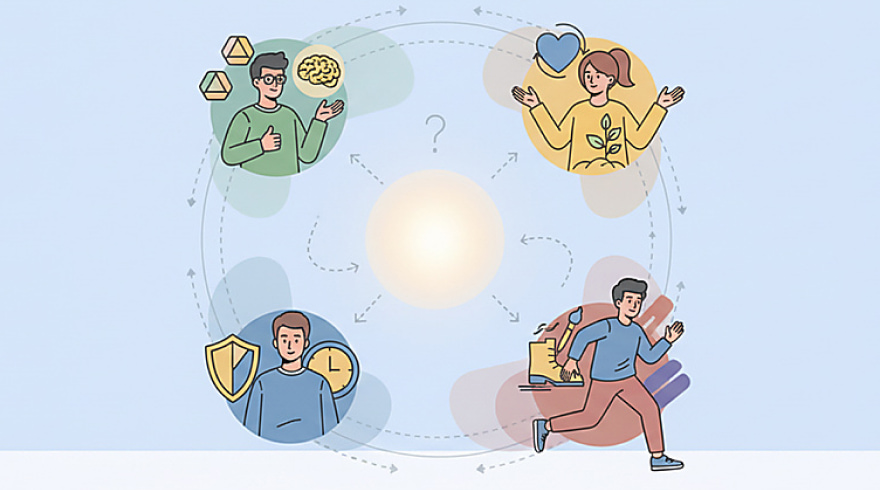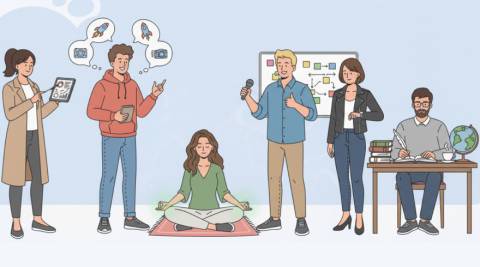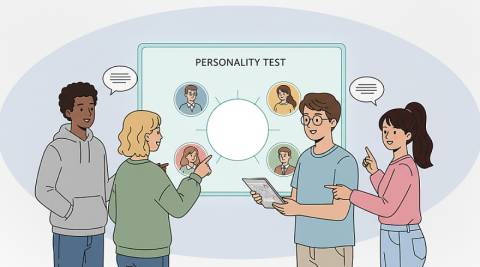Discover the 16 Personalities Test: Unveiling Your True Self

The world of personality testing has become increasingly popular, with individuals seeking to learn more about themselves and their unique traits. A prominent tool in this exploration is the 16 personalities test, an insightful methodology that helps people understand their strengths and potential growth areas. By delving into the nuances of individual assessment, this test provides a framework that can guide personal and professional development.
The History and Foundation of the 16 Personality Test
Derived from Carl Jung's theory of psychological types, the test has roots in early 20th-century psychology. Isabel Briggs Myers and her mother, Katharine Cook Briggs, developed the Myers-Briggs Type Indicator (MBTI) in the mid-1900s. Their main goal was to make Jung's theory of psychological types accessible and applicable for a wider audience. The 16 personality type test categorizes individuals into one of 16 distinctive personality types, each characterized by unique traits and tendencies.
Initially designed with a purpose to guide individuals towards a rewarding career path, the scope of personality testing has expanded impressively over time. Nowadays, these tests are employed in diverse contexts like education, workforce evaluations, and personal relationships. The intriguing fusion of science and artistry within personality assessments, such as the 16 personalities Myers-Briggs test, has empowered many individuals to deepen their self-awareness and knowledge about others. This tool is not only instrumental in improving work team dynamics but also shines a light on understanding interactions within families. Hence, it continues to be a central focus for many in their quest for enhanced interpersonal comprehension and self-discovery.
Core Components of the Personality Framework
- Extraversion (E) vs. Introversion (I): Determines how individuals draw energy.
- Intuition (N) vs. Sensing (S): Focuses on how information is perceived.
- Thinking (T) vs. Feeling (F): Relates to decision-making preferences.
- Judging (J) vs. Perceiving (P): Reflects lifestyle and approach to the external world.
Benefits of Taking the 16 Personalities Test
Engaging with the Myers-Briggs test for 16 personalities can offer a wealth of benefits to those willing to explore its insights. One of the primary advantages is self-awareness. By uncovering your unique type, you can develop a deeper understanding of your preferences, motivations, and potential challenges. This knowledge often leads to improved personal satisfaction and clarity in life decisions.
Furthermore, understanding your type can enhance your relationships. The 16 personality test by Myers-Briggs can provide insights into how you interact with others, helping identify potential areas of conflict. By recognizing and respecting different personality dynamics, you can improve communication skills and develop more meaningful connections. In a professional context, it shines as a tool for career development. Employers often use the MBTI 16 personality test to foster teamwork and enhance workflow dynamics. For individuals, it can illuminate career paths that align with intrinsic motivations and strengths. Ultimately, this personalized insight leads to greater job satisfaction and personal fulfillment.
Accessing the Test: Options and Detailed Analysis
Curious about exploring your personality type? Fortunately, you can easily access a free personality test for 16 personalities online. Comprehensive assessments are provided by various platforms, with an emphasis on maintaining the integrity of the original framework. Among these, the MBTI test for 16 personalities stands out, offering detailed reports that delve deeper into your unique traits. These reports shed light on your personality type, accentuating strengths, spotlighting areas for improvement, and illuminating potential career paths.
The 16 personalities free test features an intuitive format, typically consisting of a series of statements to which you respond along a spectrum. This adaptive nature ensures a nuanced understanding, setting it apart from more restrictive forms of personality assessments. The comprehensive analysis of your type offers invaluable insights, whether you're delving into the subtleties of personal growth or examining professional opportunities.
| Platform | Features |
|---|---|
| 16 Personalities | Short, simple, insightful overview |
| Truity | Comprehensive reporting and analysis |
| Human Metrics | Free reports with career insight suggestions |
Interpreting Your 16 Personalities Test (MBTI) Results
Once you've completed your test, the next step lies in understanding the 16 personalities test results. Each personality type is represented by a four-letter code, which corresponds to the preferred traits in each of the core components. For instance, an INTJ represents Introversion, Intuition, Thinking, and Judging. This shorthand provides a straightforward reference model to communicate and refine personal and professional strategies.
It is crucial to remember that these results are not restrictive labels but rather a guide to understanding your underlying preferences. The 16 trait personality test is designed to open doors to new paths of self-exploration. Remember, personality is fluid, and these insights are but one step in a broader journey of self-discovery.
Applying the findings in daily life can lead to enhanced personal growth, improved relationships, and a fulfilling career. The blend of objective analysis and subjective introspection truly makes the sixteen personalities test a cornerstone in contemporary self-development practices.
Frequently Asked Questions
- What is the origin of the Myers-Briggs 16 personality test?
The test originates from Carl Jung’s theory of psychological types and was later developed by Isabel Briggs Myers and Katharine Cook Briggs in the 20th century to help individuals better understand their psychological preferences.
- How can the 16 personality types test benefit me?
Understanding your Myers-Briggs personality type can reveal your natural strengths, communication style, and areas for growth, helping you make more informed career and relationship decisions.
- Are there free tests available?
Yes, you can take a free 16 personalities test online through various platforms that provide accurate, research-based insights into your type and behavioral tendencies.
- What does each letter in the Myers-Briggs test stand for?
Each letter represents one of four preference dichotomies: Extraversion (E) or Introversion (I), Sensing (S) or Intuition (N), Thinking (T) or Feeling (F), and Judging (J) or Perceiving (P).
- Can my personality type change over time?
While your dominant preferences often remain consistent, personal growth and life experiences can influence how your personality traits are expressed over time.
Latest News



